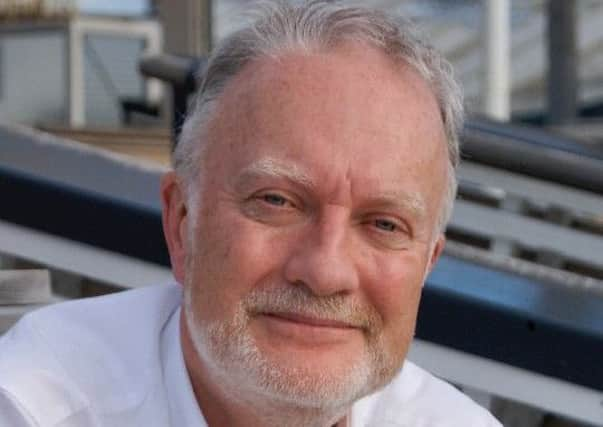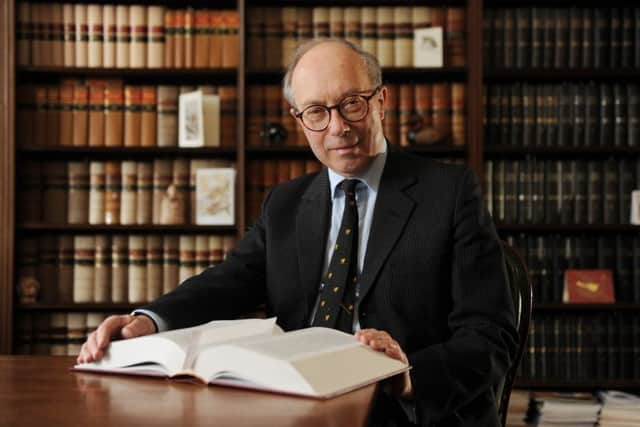John Sturrock: Don't let self-doubt hold you back


The private suffering experienced by many people, even those in leading positions, came home to me over the festive season as I read a remarkable book by Lord Hope, or Baron Hope of Craighead to give him his full title. Lord Hope retired as Deputy President of the UK Supreme Court in 2013. The book, published by Avizandum, is volume one of Lord Hope’s Diaries, covering the period 1978-86, during which time he served as Queen’s Counsel in Scotland, prosecuting as an advocate depute in criminal trials and appearing as senior counsel in many important civil cases.
I trained at the Scottish Bar in 1985-86 and was admitted as a member of the Faculty of Advocates in the summer of 1986, the same month in which this edition of Lord Hope’s Diaries concludes. At that time, I only knew of the then David Hope as one of the most esteemed lawyers in the country and a rather distant, earnest figure in our courts. He seemed to have the legal world at his fingertips. His reputation was without peer. My first major case after calling as an advocate was with David as my senior in (for me) a difficult judicial review. I had the privilege to work with him in a number of cases in my early years at the Bar, and my opinion of him and his remarkable attention to detail and grasp of the law only grew.
Advertisement
Hide AdAdvertisement
Hide AdLord Hope’s career subsequent to the period covered in this first volume went from strength to strength. He was elected as Dean of the Faculty of Advocates in 1986, appointed in 1989 Scotland’s most senior judge, Lord President, and subsequently to the highest court in the UK, the House of Lords, which metamorphosed into the Supreme Court in 2009.


The historical narrative is fascinating. In his Diaries, however, Lord Hope reveals a different, much more vulnerable side. We learn that even the most competent and apparently confident among us is not without fear. He describes “moments of despair as well as moments of triumph or elation”. (“There were times when it was a struggle to keep going.”)
He describes “stage fright” in graphic terms and the pressures of an extraordinarily busy practice. He records having undertaken 203 consultations and giving 235 opinions in the year to July 1986, along with a very busy court practice and various book-writing duties and social engagements. That he worked almost full-time seven days a week with hardly a break is not surprising. That he somehow survived this phenomenal work-rate is testimony to an exceptional determination and constitution. He describes the diary, written as these experiences unfolded, as “a kind of confessional”.
Lord Hope relates being “assailed by self-doubt” and his mind turning into “a jelly of confused and inadequate thought” as his “typical bout of autumn depression” returned. On one occasion, trying to control a fit of nerves in court, he cut his finger while pressing a pencil forcefully into it. His fear of public speaking contributed to uncertainty about fitness to serve as a Faculty office-bearer, feeling “nervous and unsuited” to the job of Vice Dean when he stood for that office in 1983. His loss in that election led him to conclude that he would “never now be a Faculty office bearer” and would “just plod on”. His self-consciousness about his stature caused him discomfort on social occasions.
What do we learn from these extraordinary admissions? Many of us are driven no doubt by a fear of failure and a need to prove ourselves. Often, this can lead to an unachievable striving for perfection. Perfectionism can be a crippling disease with serious consequences. On the other hand, Lord Hope’s story is comforting to those of us who have struggled with anxiety and uncertainty about meeting expectations in the professional world. We are not alone.


I wish I had known of Lord Hope’s fears when I was starting out. I think it would have made my own experiences easier to bear. We don’t all have to cope with it in the way that Lord Hope did, but we can start by accepting that self-doubt and feelings of inadequacy are not unusual.
John Sturrock QC is senior mediator, Core Solutions and was a practising advocate, 1986-2002.